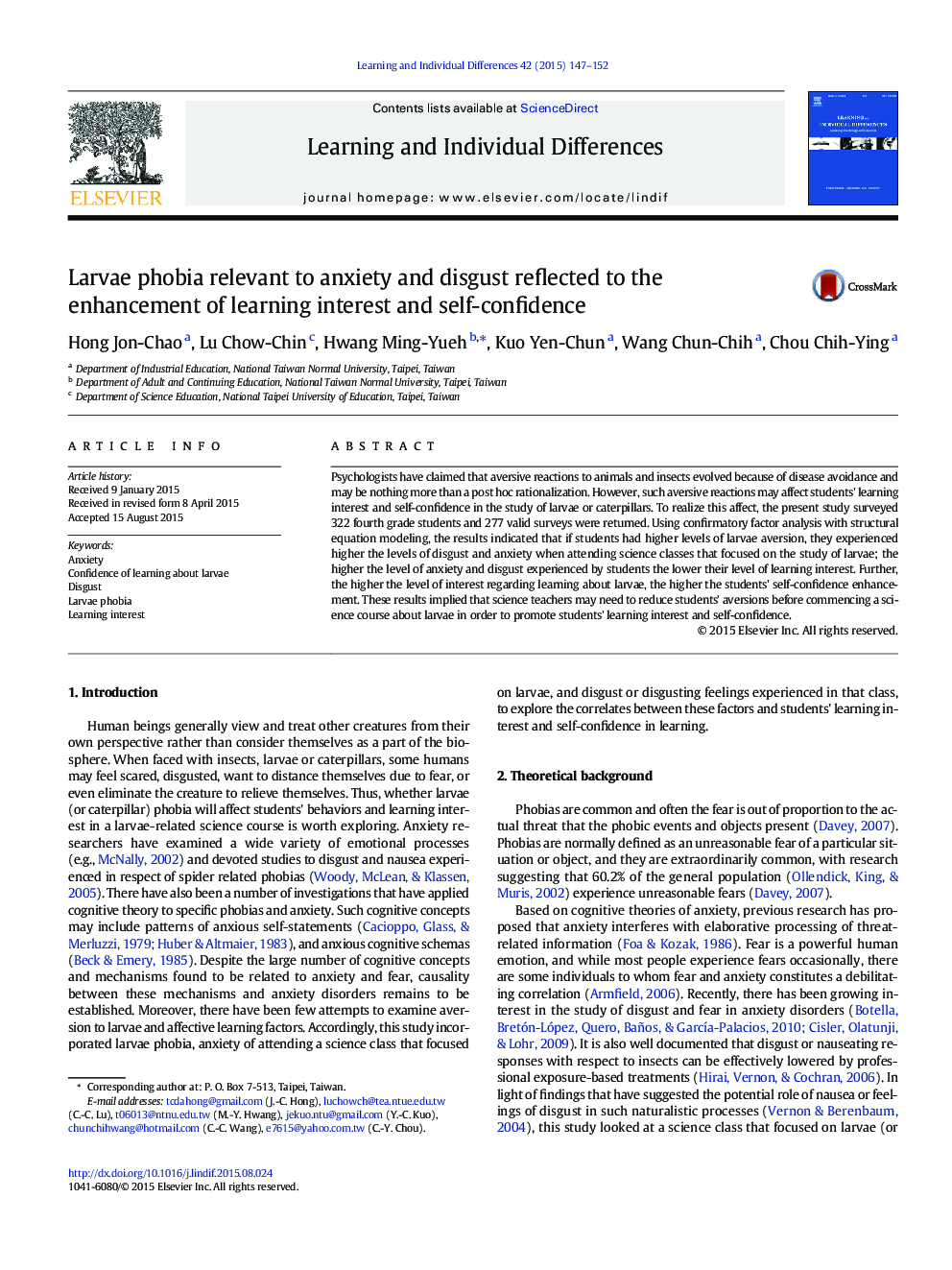| Article ID | Journal | Published Year | Pages | File Type |
|---|---|---|---|---|
| 364580 | Learning and Individual Differences | 2015 | 6 Pages |
•The higher the larvae aversion, the higher level of disgust the students experience in class.•The higher the level of disgust experienced, the lower the level of learning interest.•The higher the level of larvae interest, the higher the self-confidence enhancement.
Psychologists have claimed that aversive reactions to animals and insects evolved because of disease avoidance and may be nothing more than a post hoc rationalization. However, such aversive reactions may affect students' learning interest and self-confidence in the study of larvae or caterpillars. To realize this affect, the present study surveyed 322 fourth grade students and 277 valid surveys were returned. Using confirmatory factor analysis with structural equation modeling, the results indicated that if students had higher levels of larvae aversion, they experienced higher the levels of disgust and anxiety when attending science classes that focused on the study of larvae; the higher the level of anxiety and disgust experienced by students the lower their level of learning interest. Further, the higher the level of interest regarding learning about larvae, the higher the students' self-confidence enhancement. These results implied that science teachers may need to reduce students' aversions before commencing a science course about larvae in order to promote students' learning interest and self-confidence.
